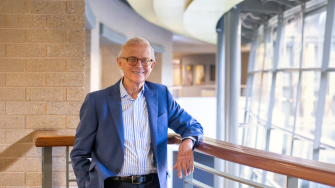In a recent piece, published in MJA, Professor Henry Brodaty reflects on his distinguished career in dementia research and care, which began with his decision to focus on the brain as a junior resident medical officer.
His personal experiences with dementia in his family and the lack of support available at the time motivated him to co-found the Alzheimer’s Disease and Related Disorders Society (ADARDS) in New South Wales in 1982.This organisation, which later became Dementia Australia, played a pivotal role in transforming dementia care, support, public policy, and research across the country.
Prof Brodaty’s journey has been marked by significant contributions to the field, including the establishment of the Centre for Healthy Brain Ageing (CHeBA) at UNSW in 2012, aimed at promoting healthy brain ageing through research.
Throughout his career, Prof Brodaty has witnessed a shift in public perception of dementia, from a field seen as depressing to one that garners significant interest and concern.
He highlights the complexity of dementia care, which requires a multidisciplinary approach involving medical, psychiatric, social, policy, and economic considerations. Despite the challenges, Brodaty finds the field intellectually stimulating and fulfilling, allowing him to merge his interests in psychiatry and neurology.
His work continues to inspire and drive advancements in dementia research and care, reflecting his lifelong commitment to improving the lives of those affected by this condition.

